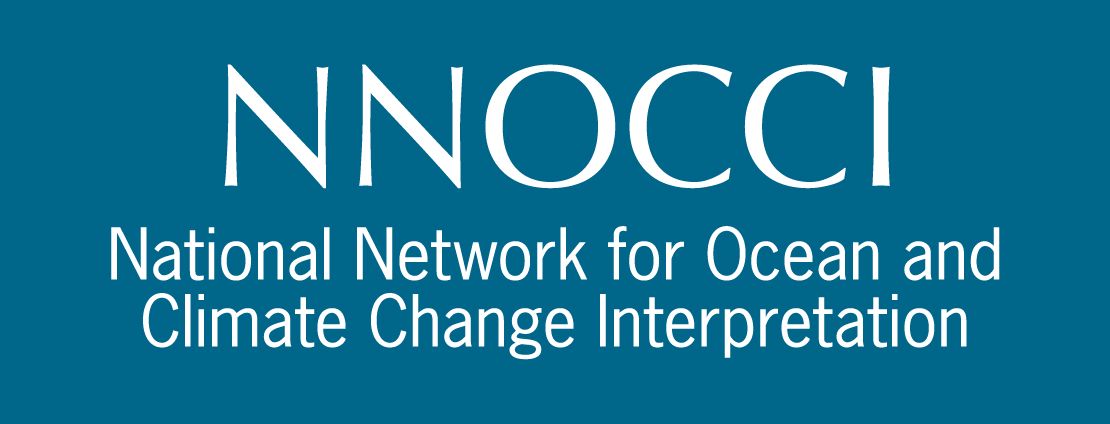NEW! NNOCCI Trainer Course

The National Network for Ocean and Climate Change Interpretation (NNOCCI) is launching its first-ever Trainer Course this fall! The NNOCCI Trainer Course will build participants’ confidence and competence in facilitating climate change programs at their organization and within their community. Via a National Oceanic and Atmospheric Administration (NOAA) grant, this five month (October 2022 to February 2023) comprehensive course will cover tested strategies for constructive climate communication, best practices for training others in those strategies, and the role of DEI and environmental justice in this work. The course will consist of three phases of virtual and in-person experiences with the final phase taking place in-person at the Busch Gardens, Tampa.
During this application cycle, we are interested in recruiting Southeast United States-based climate communicators, so if you know agencies or partners that would be interested, please share the application and companion FAQs with them!
For course details, benefits please visit our Trainer Course FAQ HERE!
Apply to the Trainer Course HERE!
The NNOCCI Training Committee will begin reviewing applications on August 15th, at which time there will be a rolling acceptance to the course.
The FINAL application deadline is September 2nd, 2022.
WHO OR WHAT IS NNOCCI?
For over ten years, NNOCCI has thrived as a partnership among climate scientists, informal science educators, and engaged community members who have public trust and large audiences; collectively we are dedicated to using our platforms to have productive conversations about climate action. NNOCCI uniquely employs research-driven linguistic and psychological research to increase efficacy, understanding, and interest in engaging on climate issues. We operate as a supportive Community of Practice, using and teaching evidence-based tools to inspire hope and action. Together, we can change the national conversation around climate change to be more positive, productive and solutions focused.
If you have any questions, please feel free reach out to contactnnocci@gmail.com
More Blog Posts
 The Right Message from the Right MessengerThe Right Message from the Right Messenger Allison Arteaga, December 20 2017 The National Network for Ocean & Climate Change Interpretation (NNOCCI) has some exciting news for climate change communicators! Those of you who have received training in Strategic Framing® techniques through the network may recall collecting pre- and post- training [READ MORE]
The Right Message from the Right MessengerThe Right Message from the Right Messenger Allison Arteaga, December 20 2017 The National Network for Ocean & Climate Change Interpretation (NNOCCI) has some exciting news for climate change communicators! Those of you who have received training in Strategic Framing® techniques through the network may recall collecting pre- and post- training [READ MORE] Communicating in the Swamp: How to Navigate Public Thinking About Climate and Ocean ChangeCommunicating in the Swamp: How to Navigate Public Thinking About Climate and Ocean Change July 22 2016 This is the first in a series about framing ocean and climate change. When people think about oceans this summer, they might think of a good vacation spot—a place to spread out the beach towel, pop up the umbrella, and relax under the sun as [READ MORE]
Communicating in the Swamp: How to Navigate Public Thinking About Climate and Ocean ChangeCommunicating in the Swamp: How to Navigate Public Thinking About Climate and Ocean Change July 22 2016 This is the first in a series about framing ocean and climate change. When people think about oceans this summer, they might think of a good vacation spot—a place to spread out the beach towel, pop up the umbrella, and relax under the sun as [READ MORE] Rosemary Mosco: Climate IllustrationRosemary Mosco: Climate Illustration by Allison Arteaga, March 18 2019 A comic that circulated through social media this past month spread hope on climate change to thousands, and it was all inspired by the artist’s connections to the National Network for Ocean & Climate Change Interpretation (NNOCCI). “Climate Worries”, a cartoon by science [READ MORE]
Rosemary Mosco: Climate IllustrationRosemary Mosco: Climate Illustration by Allison Arteaga, March 18 2019 A comic that circulated through social media this past month spread hope on climate change to thousands, and it was all inspired by the artist’s connections to the National Network for Ocean & Climate Change Interpretation (NNOCCI). “Climate Worries”, a cartoon by science [READ MORE] Cut through Confusion with Appeals to Protection and ResponsibilityCut through Confusion with Appeals to Protection and Responsibility September 07 2016 This is the third in a series about framing ocean and climate change. Advocates and experts are familiar with common—but often untrue—tropes about our environment. How can we cut through them and communicate in a way that deepens understanding about the complex [READ MORE]
Cut through Confusion with Appeals to Protection and ResponsibilityCut through Confusion with Appeals to Protection and Responsibility September 07 2016 This is the third in a series about framing ocean and climate change. Advocates and experts are familiar with common—but often untrue—tropes about our environment. How can we cut through them and communicate in a way that deepens understanding about the complex [READ MORE] Global Climate Action Summit RecapGlobal Climate Action Summit Recap by Allison Arteaga, September 20 2018 One week ago, leaders from around the world gathered in San Francisco for the Global Climate Action Summit. The event celebrated ongoing efforts to curb fossil fuel emissions, while also calling for more ambitious action to meet the targets set forth by the Paris Agreement. [READ MORE]
Global Climate Action Summit RecapGlobal Climate Action Summit Recap by Allison Arteaga, September 20 2018 One week ago, leaders from around the world gathered in San Francisco for the Global Climate Action Summit. The event celebrated ongoing efforts to curb fossil fuel emissions, while also calling for more ambitious action to meet the targets set forth by the Paris Agreement. [READ MORE]